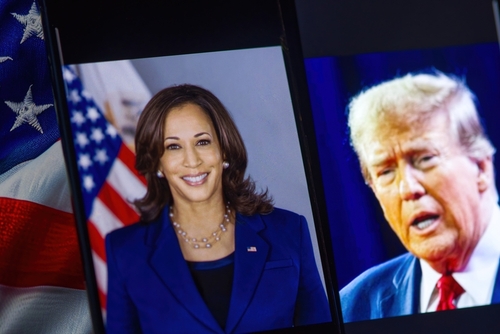With less than a year until the 2024 U.S. presidential election, concerns over potential unrest are mounting as political divides continue to widen. If former President Donald Trump wins, various left-leaning activist groups and some Democrats are preparing for what they describe as "uprising" scenarios, indicating they may not accept a Trump victory quietly. Analysts warn that political tensions are likely to intensify further, fueled by both sides’ rhetoric and distrust in the electoral system, making the outcome of the 2024 election a potential flashpoint.
Tensions have already been high, with experts highlighting the impact of recent years’ political violence, which includes incidents such as the January 6 Capitol riot and the assassination attempts on political figures. Some groups have begun contingency planning for disruptions should Trump secure a victory, anticipating protests that could escalate. Javed Ali, a security expert at the University of Michigan, explains that law enforcement officials are preparing for a range of potential disturbances, ranging from localized protests to larger-scale confrontations. Ali notes that these agencies are “trying to minimize the big vulnerabilities” in their response strategies, knowing that some level of unrest could be inevitable due to existing divides and heightened distrust among voters of both parties.
Washington D.C. braces for civil unrest by erecting riot fences and boarding up business prior to Election Day https://t.co/iVCUrehp9E pic.twitter.com/vmiEVz4M4s
— Mail+ (@DailyMailUK) November 4, 2024
As organizations on the left strategize, reports also indicate that law enforcement and federal agencies have conducted workshops and simulations to improve election security and prepare for violence. Officials and national security advisors are taking the risks seriously, with many agencies seeking to ensure that they are better prepared to handle unrest than in previous elections. Following the events of 2020, authorities have taken steps to close security gaps, a move that involves heightened coordination between federal, state, and local agencies to ensure the protection of polling places, candidates, and election workers.
Political polarization has become a notable factor in planning efforts, with an increasing number of influential activists and groups on the left expressing distrust in the electoral process if Trump prevails. They argue that another Trump administration could be detrimental to civil rights and environmental protections, among other issues. This has led some left-wing groups to discuss widespread demonstrations or even resistance if they view the election outcome as compromised, echoing concerns similar to those voiced by conservative groups in previous elections. According to The Week, this shared distrust of the electoral system is exacerbating fears that both sides may mobilize supporters if election results are contested.
National Guard Mobilized After Burned Ballots and burned votes. As Election Day approaches, several states, have activated the National Guard in anticipation of potential unrest. Recent ballot dropbox incidents have raised concerns, prompting swift action. #trump #kamalaharris pic.twitter.com/zrDwOaz54p
— its Jimmy (@itsjimmyshow) November 3, 2024
Trump, too, has not signaled any intention to reassure the public of a peaceful transition. During his 2024 campaign events, Trump has repeatedly referred to his opponents as “radical left lunatics,” suggesting he may take unprecedented measures, including deploying the National Guard, to quell opposition if elected. Trump's rhetoric, which often includes warnings of "the enemy within," appears to resonate with his base, but it is also raising concerns among those who interpret it as a sign he would use military power against American citizens. Security experts worry that such statements, combined with broader fears of an illegitimate election, could spark a new wave of civil unrest and deepen national divides.
Political analysts further suggest that foreign interference could exploit these domestic vulnerabilities. A recent RAND report notes that adversarial nations such as Russia and China could exacerbate polarization and influence public sentiment through social media campaigns, increasing the risk of disruptive behaviors from both the left and the right. This threat of cyber and psychological warfare from abroad adds another layer of complexity to the already charged atmosphere, potentially making 2024 a volatile year for U.S. democracy.
In preparation for potential violence, federal and state law enforcement agencies have created specialized task forces and are enhancing cybersecurity measures to counter foreign influence. Officials are attempting to monitor social media channels more closely to track early signs of organized civil unrest or any call to arms among extremist groups on either side of the political aisle.
As Election Day approaches, the likelihood of confrontation grows more pronounced. Both Trump and left-leaning groups appear determined to stand firm, regardless of the official results, which could lead to heightened volatility not only on Election Day but in the weeks and months that follow.

